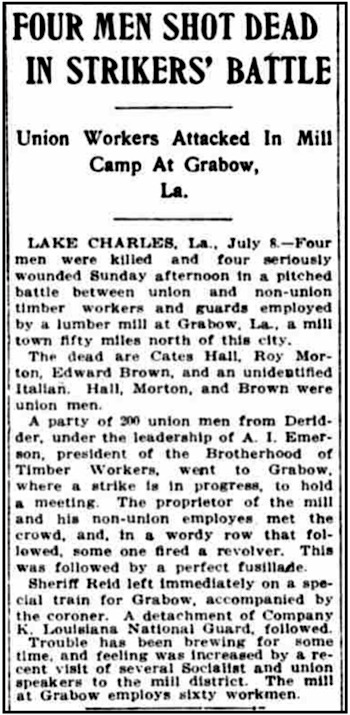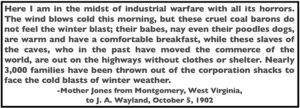 —————
—————
Hellraisers Journal – Wednesday May 27, 1903
West Virginia Miners Face Gatling Guns, Company Guards & Peonage
From the Duluth Labor World of May 23, 1903:
GATLING GUN FOR THE MINERS
———-RIDDLES GREAT TREES IN FOREST
IT IS TRAINED UPON.
———-WORKMEN HELP PRISONERS
———-
Will Resort to More Bloodshed If It Becomes
Necessary to Coerce the Miners.
———-
Labor conditions in West Virginia mines are not enviable. Besides reports of Gatling guns mounted on fortifications to command approaches to the mines, comes the further news that the mining camps are surrounded by armed guards ready to shoot down any of the workers who try to reach the outside world. So, between the guns and the guards, the wage workers of one of the naturally rich states of the Union cannot be said to pass very happy lives.
Though so rich in natural resources-for there are coal and iron mines and virgin forests that have never yet been touched-West Virginia is cursed by monopoly. As a result, the wage workers are not free to employ themselves, but must accept the conditions of those who control the source from which all must draw their subsistence-the land.
For no other reason do the inhabitants of that state submit. Those who are enticed into its boundaries under false pretences, as evidenced by the affidavits of the miners published in the organ of the Mine Workers’ Union; have hard work to get away. They are subdued by their poverty and fear of the armed guards.
The necessity for organizing West Virginia is so apparent that it is a wonder the American Federation of Labor does not flood the state with “agitators” for human freedom and human rights. What the wage workers there need is the knowledge that their own efforts to improve their own condition will be supplemented by the good will and financial assistance of organized labor everywhere. It is a hard proposition, to be sure, to go into territory dominated by such powerful social and political interests, but greater tasks have been accomplished, and it only needs the united power of an aroused commonwealth to bring about great and good industrial changes in that section of the country.
[Newsclip and emphasis added.]

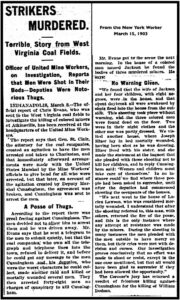
 —————
—————
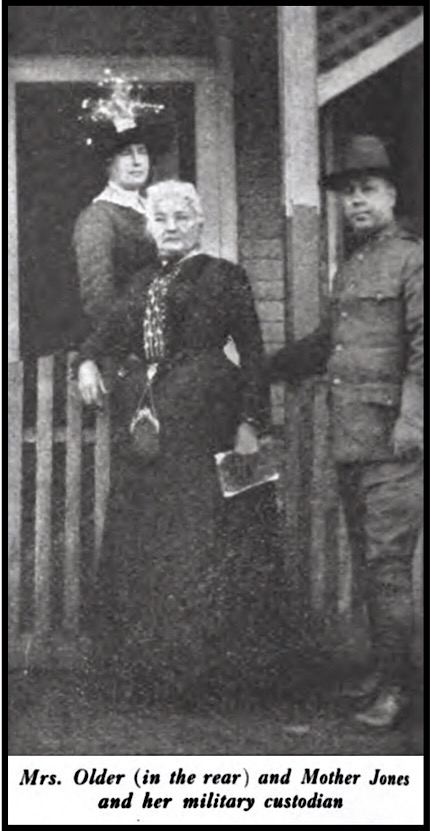
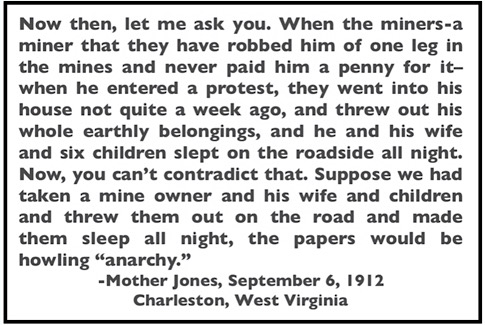 —————
—————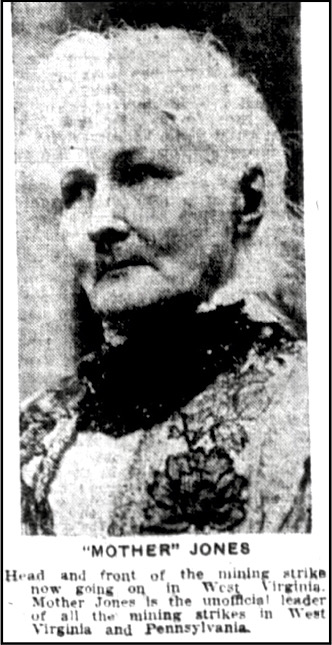
 —————
—————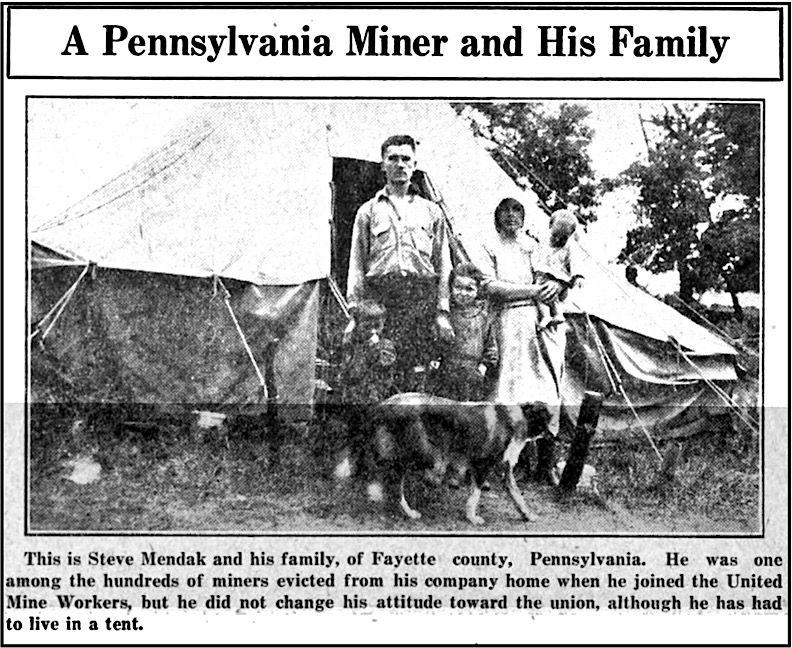
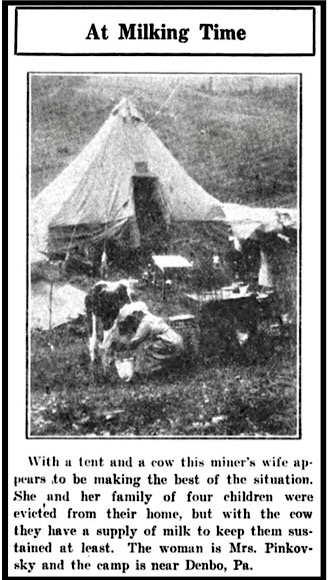
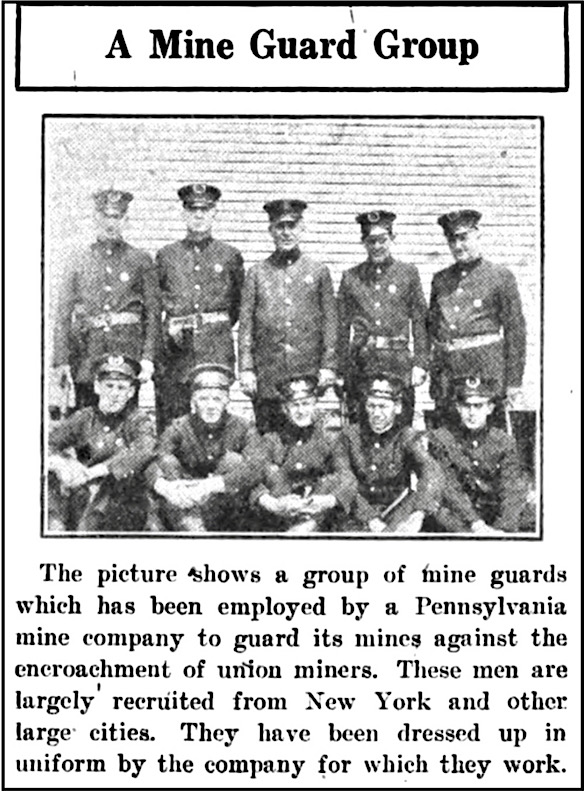
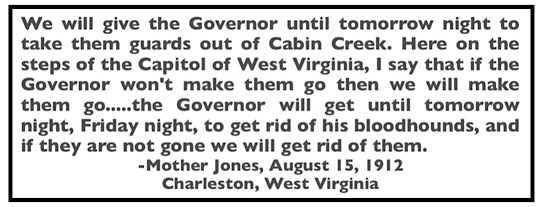 —————
—————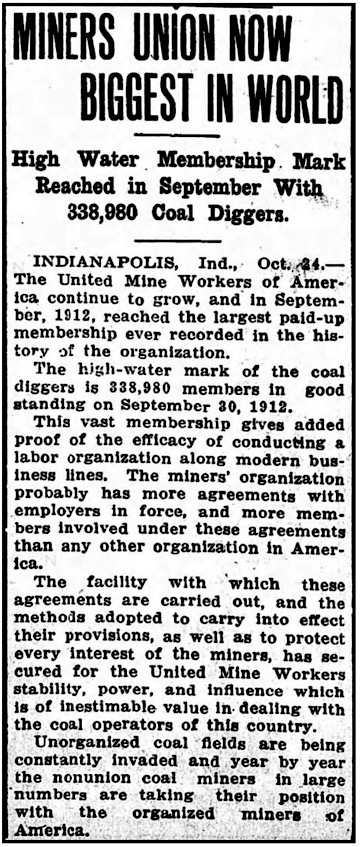
 —————
—————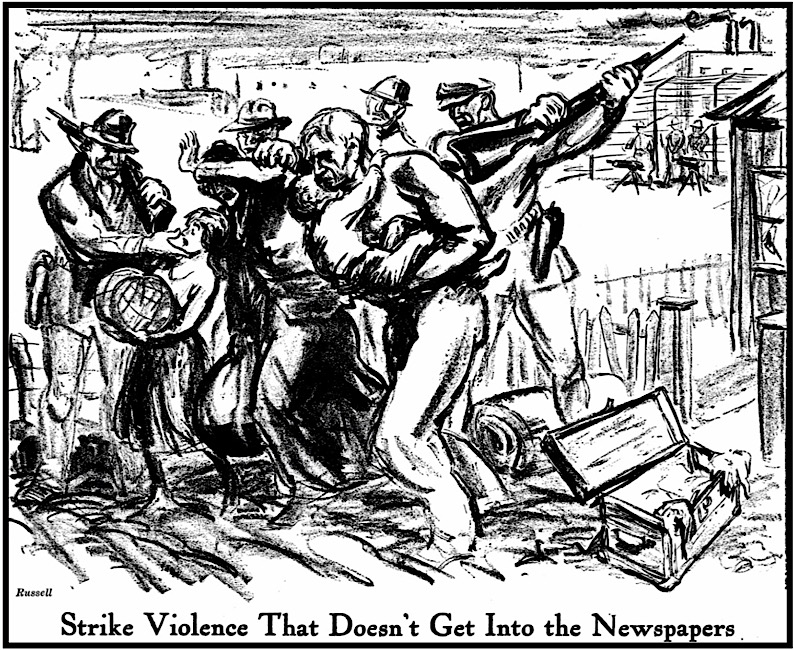
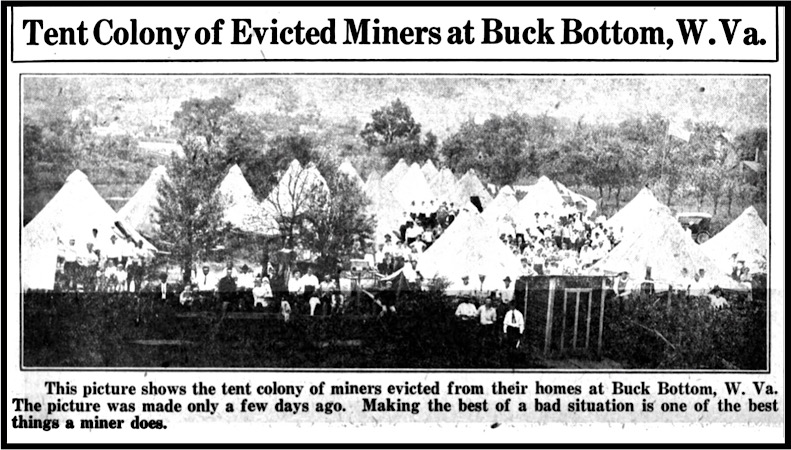
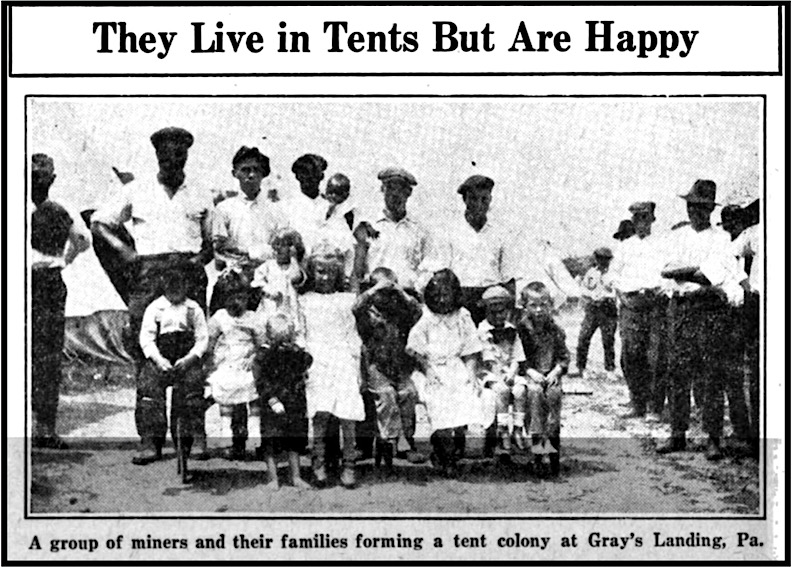
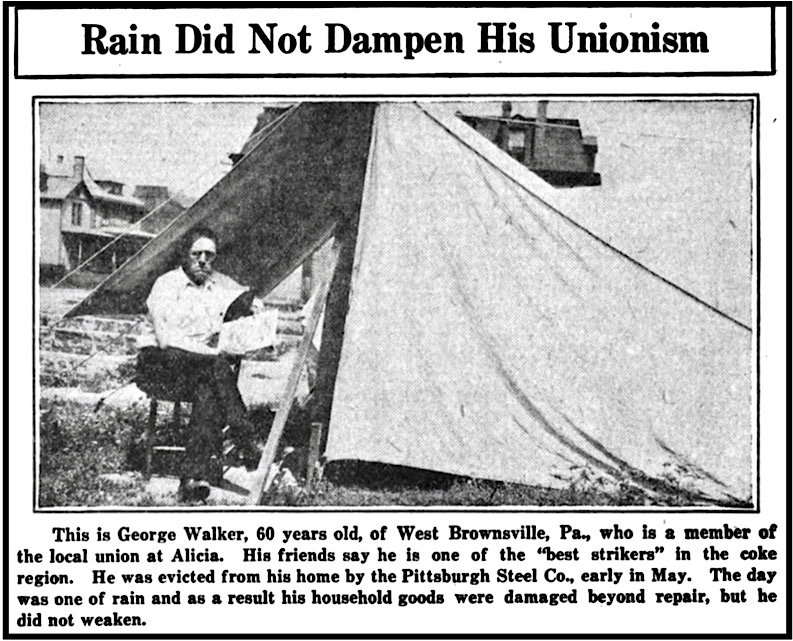
 —————
—————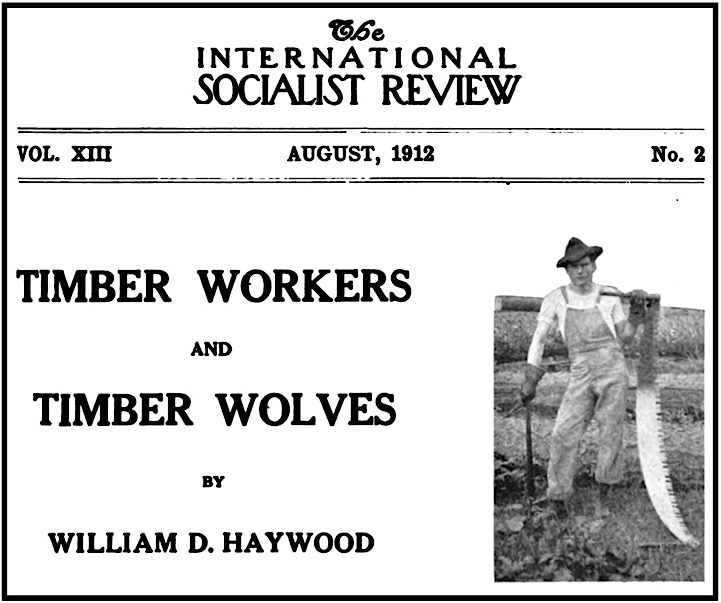
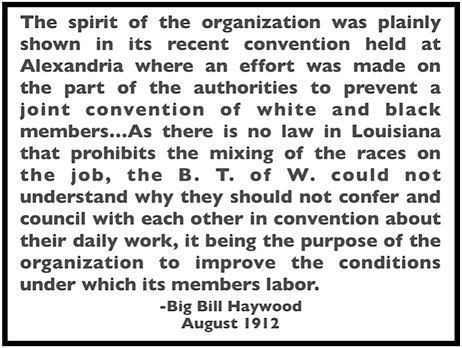 —————
—————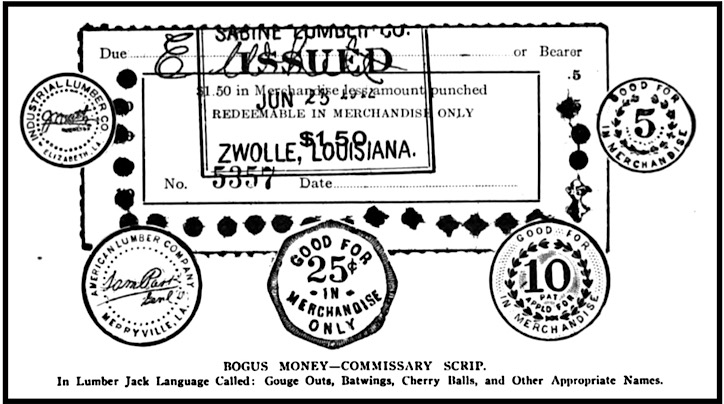
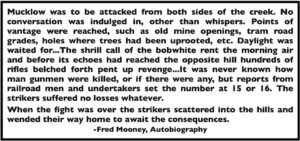 —————
—————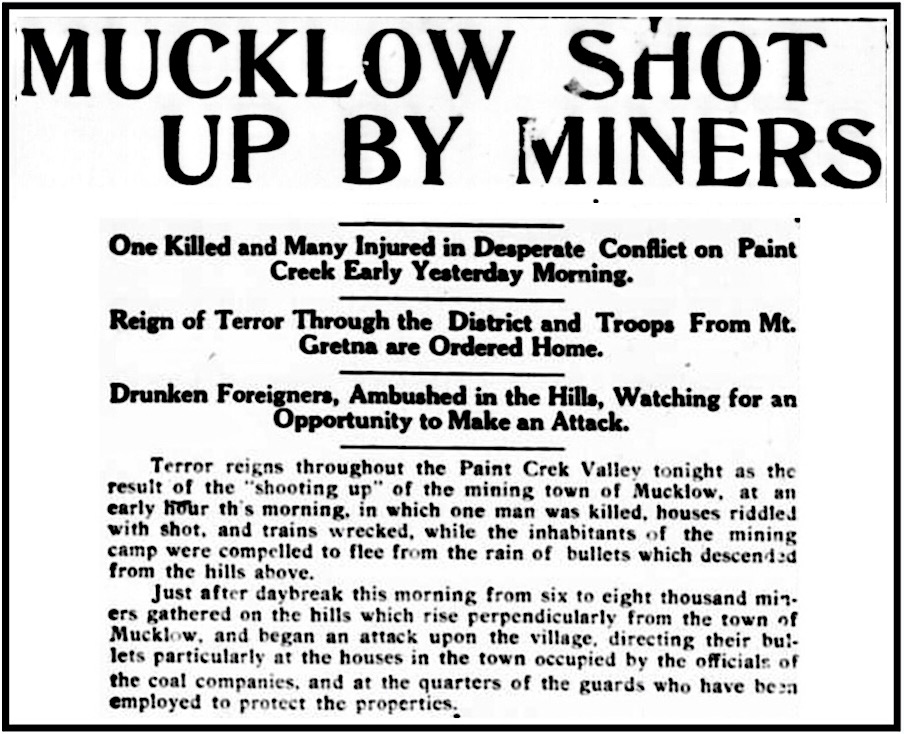
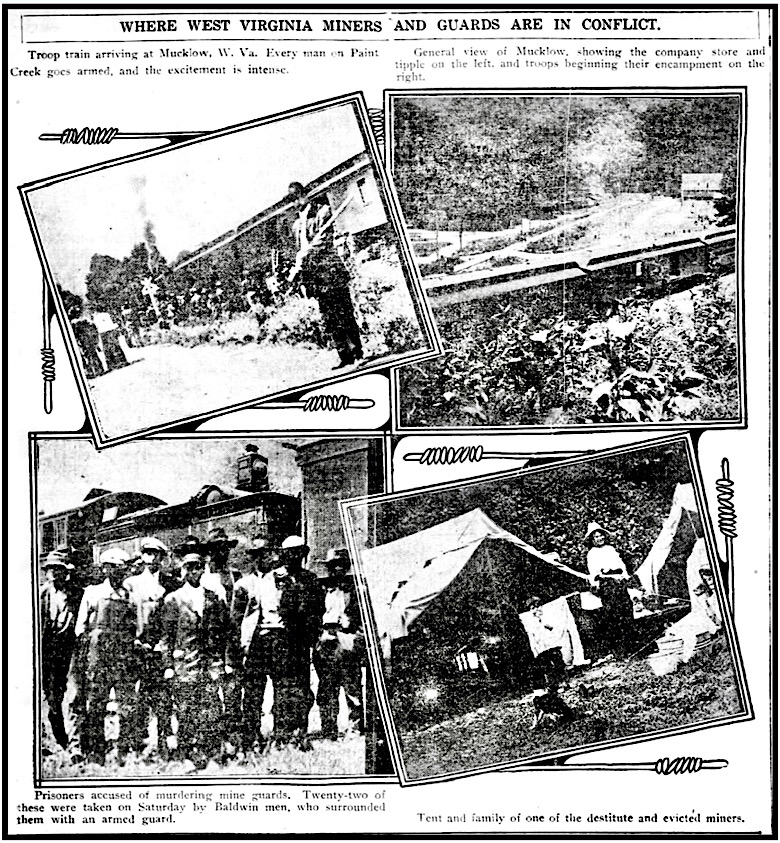
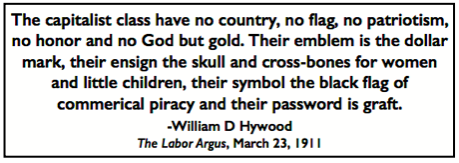 —————
—————